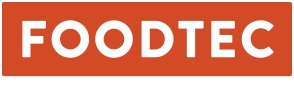Millennials. Born between 1980 and 2000, they are the largest demographic in the U.S. and make up about 36% of the work force today. Much has been written and debated about this generation and they been subjected to their fair share of criticism. Stereotypical statements include they’re narcissistic, spoiled, lazy, perceived as selfish, entitled and demanding. While they are also said to possess characteristics such as self-confidence and digital savviness, when it comes to the workplace some studies show that Millennials are the least engaged generation in the workforce.
So, are these stereotypes true? Certainly not for everyone. But there are certain tendencies and habits associated with the millennial generation that are more prevalent than in the other generations currently in the workforce. Basically, employee needs differ from one generation to the next and in order for your employees to be successful you need to know what motivates them. Boomers need relationships. They want to feel appreciated and validated. GenXers tend to want flexibility and autonomy. And for Millennials, despite their reputation for laziness, thrive on motivation and personalized feedback.
So before writing them off as needy or entitled, it’s important to understand that these workers are highly motivated for success and extremely ambitious. They can be incredible assets to your organization, restaurateurs just need to understand how to reach millennials workers at their level to tap into their potential – namely via relationships and their love of technology. Here’s some examples how.
Feedback: Millennials value, if not crave feedback. Previous generations didn’t expect to hear feedback unless they had room for improvement. Millennials, on the other hand, need acceptance and validation. Restaurants can create a culture of feedback by providing staff members with a peer mentor, so they can learn from someone on their level and use it to constantly better themselves.
“When you’re teaching millennials, you have to mentor them, not manage them. When you do that, they will remain loyal, and they will want to learn more from your company.” David Hayden, restaurant trainer.
Tech up your Training: Information and learning today is being accessed much differently than in years past. Millennials grew up with ubiquitous connectivity and evolving mobile technology and as a result they think and act differently. They turn to their smartphone to find just-in-time answers to unexpected problems. They use technology to self-start and learn in different ways. Businesses can use this to their advantage. It’s time to forget books and instruction manuals and look to training that is digitally native and mobile in order to be effective for the next generation of learners. Training that is agile and accessible will not only accelerate their training but will allow your Millennial employees learn on the go and allow them to find answers for themselves, rather than going to a manager first.
Gamification: Could games modelled after Candy Crush be used in the work place to motivate employees? Surprisingly, yes. When used in the workplace, games have the ability to make previously mundane tasks more interesting enhancing employee performance. Gamification works by using game design techniques in a non-game situation (so not exactly Candy Crush!) and it works because it taps into top three employee motivators – recognition, sense of competition and reward. Gamification provides an easy and fun way to engage employees and keep them performing throughout their tenure. Using a game to replace any part of everyday tasks, from sales to customer service, can make work more enjoyable while simultaneously driving performance. It can be as simple as instituting a sales competition for who can sell the most specials, to service-related compliments on Yelp.
Purpose: What really creates staying power for most millennial employees is having a purpose at work. They value more than just money and strive to contribute to something bigger than themselves. Understanding the impact that one’s work has on the company, community and the world is important to them. According to the United States Treasury, millennials tend to invest in organizations that prioritize the greater good more than any previous generation. As Millennials enjoy working towards a greater good and feeling like their jobs are making an impact it’s extremely beneficial for companies to ensure that their executive leadership is visible and vocal about core values and company mission.
Millennials are digital savvy. They like attention, flexibility, and growth. Feed these needs, and your business will thrive with serious productivity from the “busiest” generation.




